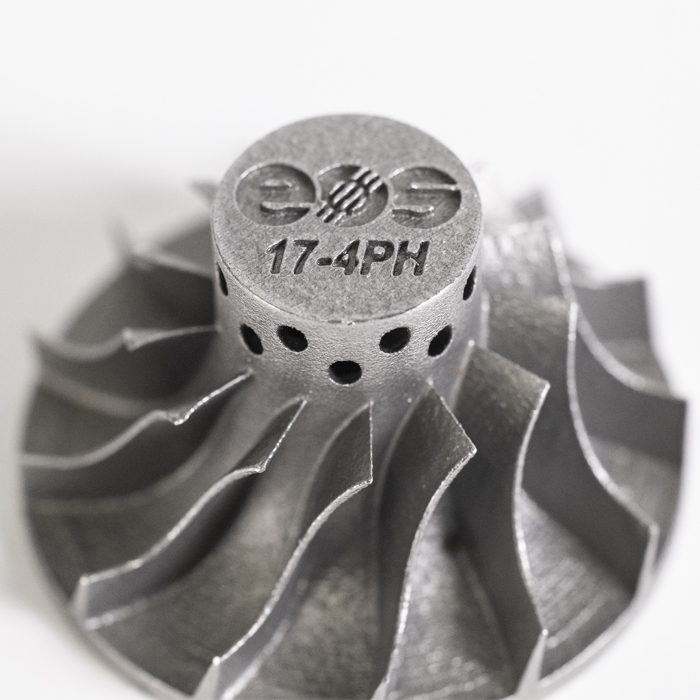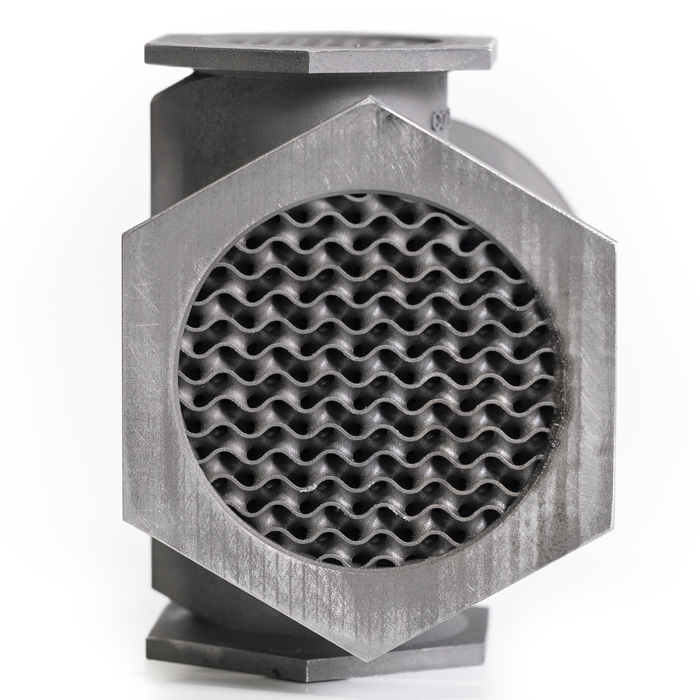From construction to aerospace, steels are the backbone of modern industry, offering unmatched strength, machinability, and reliability for demanding environments.

Below is an overview of the steel alloys available and their unique advantages:
Highly corrosion-resistant and durable, stainless steel is ideal for environments exposed to moisture, chemicals, and extreme temperatures.
- Ideal Applications: Medical instruments, food processing equipment, aerospace components.
- Unique Characteristics: Chromium content provides self-healing oxide layers, enhancing corrosion resistance.
Specifically engineered for high wear resistance, hardness, and durability, tool steel is optimized for cutting, molding, and shaping applications.
- Ideal Applications: Molds, dies, cutting tools, and industrial machinery.
- Unique Characteristics: Withstands high temperatures and repeated impact without deformation.
A versatile material offering high strength and affordability, carbon steel is ideal for structural and manufacturing applications.
- Ideal Applications: Construction beams, pipelines, and automotive parts.
- Unique Characteristics: Can be heat-treated to achieve greater hardness and strength.
Contains additional alloying elements like nickel, molybdenum, and vanadium to improve toughness, strength, and corrosion resistance.
- Ideal Applications: Aircraft landing gear, power plant turbines, and pressure vessels.
- Unique Characteristics: Customizable properties based on the alloying elements used.
Steels are renowned for their exceptional tensile strength and ability to withstand heavy loads, making them indispensable for structural and load-bearing applications. Their toughness ensures that they can endure impacts, stress, and repeated usage without failure. This durability is critical for industries like construction, automotive, and aerospace, where safety and reliability are non-negotiable.
- Why It Matters: High strength translates into longer-lasting, safer, and more reliable components.
- Examples: Structural beams in skyscrapers, landing gear in aircraft, and automotive chassis.
Grades like stainless steel are specially designed to resist rust and chemical degradation, even in harsh environments. The addition of chromium in stainless steels forms a protective oxide layer that regenerates when damaged, offering long-term protection against moisture, salt, and chemicals. This makes them ideal for applications exposed to the elements or corrosive substances.
- Why It Matters: Corrosion-resistant steels reduce maintenance costs and prolong the life of components.
- Examples: Marine-grade stainless steel for ships, surgical tools in medical environments, and pipelines in chemical processing plants.
Steels are versatile and easy to work with, allowing manufacturers to form, cut, weld, and machine them into complex shapes with precision. Different grades of steel can be optimized for various manufacturing techniques, from CNC machining to 3D printing and welding. This adaptability supports the production of intricate components for diverse industries.
- Why It Matters: Ease of machining reduces production time and costs while enabling innovative designs.
- Examples: Engine components, precision molds, and custom aerospace parts.
Certain steels, like tool steel and alloy steel, are engineered to excel in high-stress, abrasive conditions. These materials resist deformation, cracking, and surface wear, even under continuous use. This durability is essential for tools, molds, and machinery subjected to repeated impacts and friction.
- Why It Matters: Wear resistance extends the lifespan of critical components, reducing replacement costs and downtime.
- Examples: Dies for metal stamping, industrial cutting tools, and mining equipment.
Steels can be alloyed with elements like nickel, molybdenum, vanadium, and chromium to achieve specific performance characteristics, such as increased toughness, heat resistance, or corrosion resistance. Additionally, heat treatments like annealing, quenching, and tempering allow further customization to meet unique application requirements.
- Why It Matters: Customizable properties ensure that steels can be tailored for optimal performance in specialized applications.
- Examples: Heat-treated alloy steel for aerospace turbines, corrosion-resistant stainless steel for marine applications, and hardened tool steel for industrial presses.

In aerospace, where precision, weight reduction, and strength are critical, steels—especially alloy steels—play a vital role in ensuring safe and efficient performance. Their resistance to extreme temperatures and mechanical stress makes them ideal for aviation and space exploration.
- Landing Gear: High-strength alloy steels are used to support heavy loads during takeoff and landing, ensuring durability under repeated stress.
- Engine Components: Steel is used in turbine blades, shafts, and other engine parts that endure high temperatures and mechanical forces.
- Fasteners: Aircraft-grade stainless and alloy steels are used for corrosion-resistant, high-strength fasteners in fuselage assembly.
Steels are integral to automotive manufacturing, balancing strength, affordability, and versatility. They enable the creation of safe, durable, and fuel-efficient vehicles.
- Chassis: Carbon and alloy steels provide the rigidity and crashworthiness needed for vehicle frames.
- Suspension Systems: High-strength steels support shock absorption and vehicle stability.
- Engine Components: Crankshafts, camshafts, and engine blocks are made from specialized steels that resist wear and high temperatures.
- Additional Applications: Exhaust systems, body panels, and gears.
The energy sector demands materials that can withstand extreme pressures, temperatures, and corrosive environments. Steels deliver exceptional performance in power generation, oil and gas, and renewable energy.
- Turbines: Alloy steels are used in turbine blades and rotors for power plants, where high strength and heat resistance are essential.
- Pipelines: Carbon steel pipelines transport oil, gas, and water over long distances while resisting corrosion and pressure.
- Pressure Vessels: High-strength steels are critical for storing and processing fluids in chemical plants and energy facilities.
Steels, particularly stainless steel, are indispensable in the medical field due to their biocompatibility, corrosion resistance, and ease of sterilization.
- Surgical Instruments: Scalpels, forceps, and scissors made from stainless steel maintain sharpness and resist corrosion from repeated sterilization.
- Implants: Stainless steel implants, such as pins, screws, and plates, provide biocompatibility and durability in orthopedic applications.
- Hospital Equipment: Beds, trolleys, and diagnostic equipment frames are made from stainless steel for hygiene and longevity.
In industrial manufacturing, steels are essential for producing tools, molds, and machinery capable of withstanding heavy use and high stress.
- Dies and Molds: Tool steels are used to create durable dies and molds for stamping, injection molding, and extrusion processes.
- Cutting Tools: High-speed steels and carbide-reinforced steels are essential for machining operations, including drilling, milling, and turning.
- Machinery Components: Gears, shafts, and bearings made from alloy and tool steels provide long-lasting performance in industrial equipment.